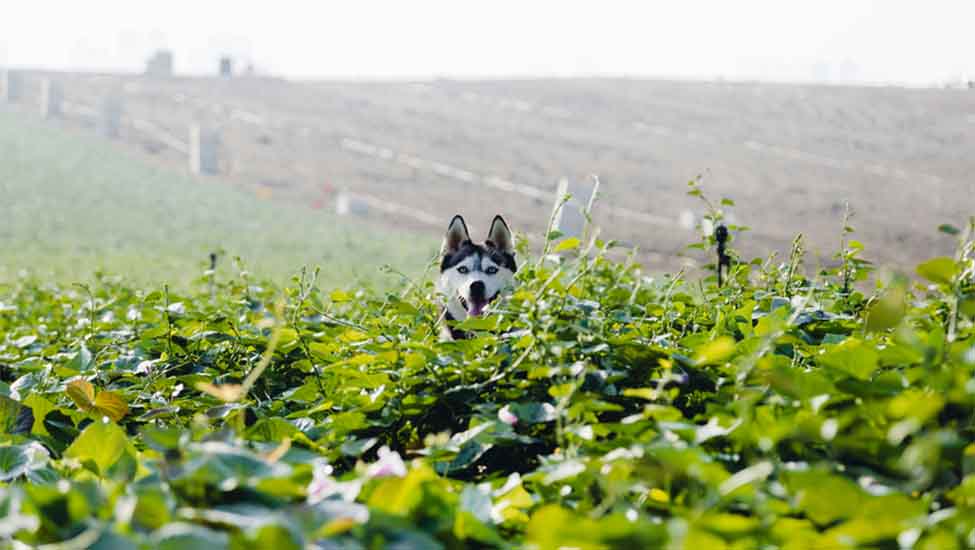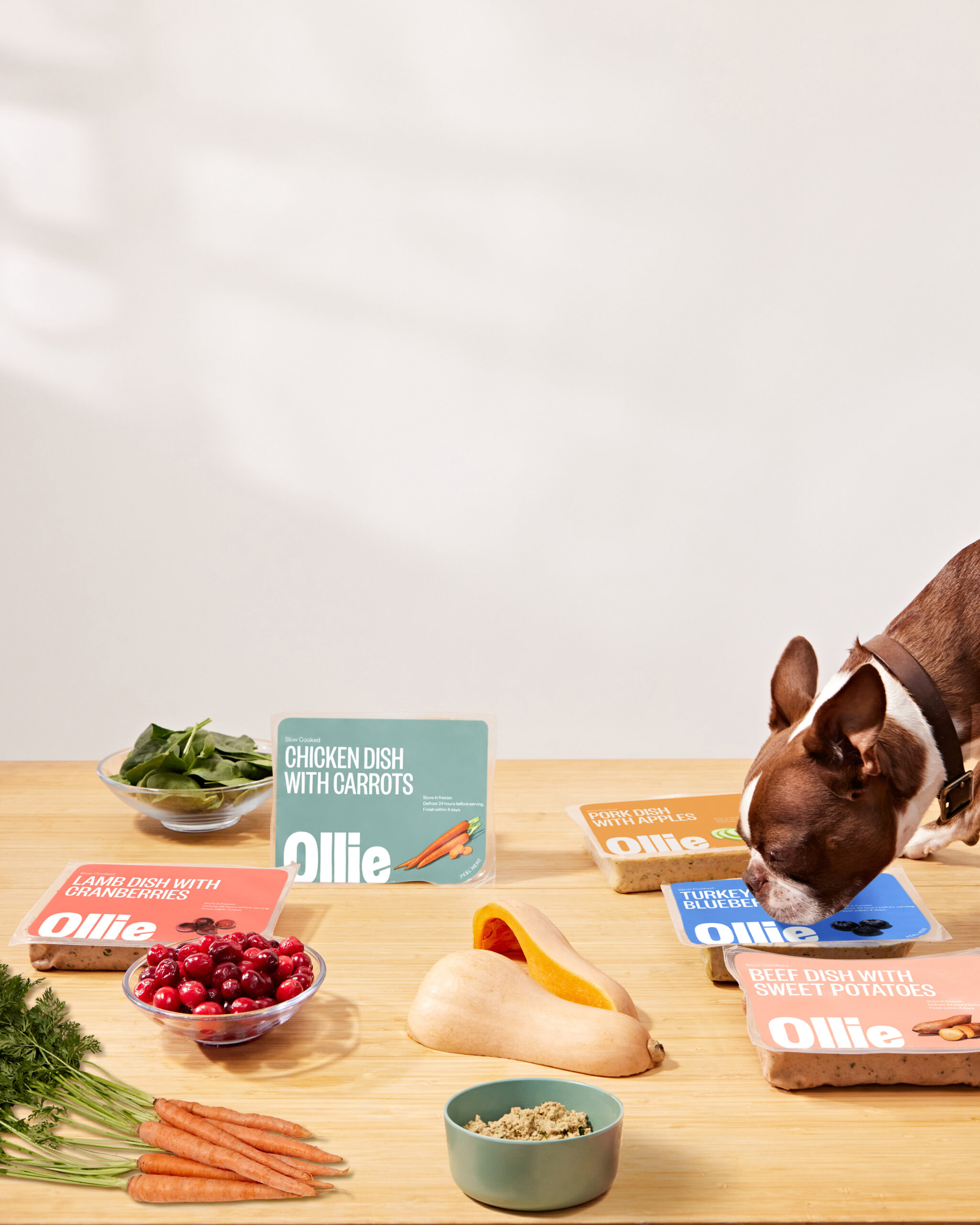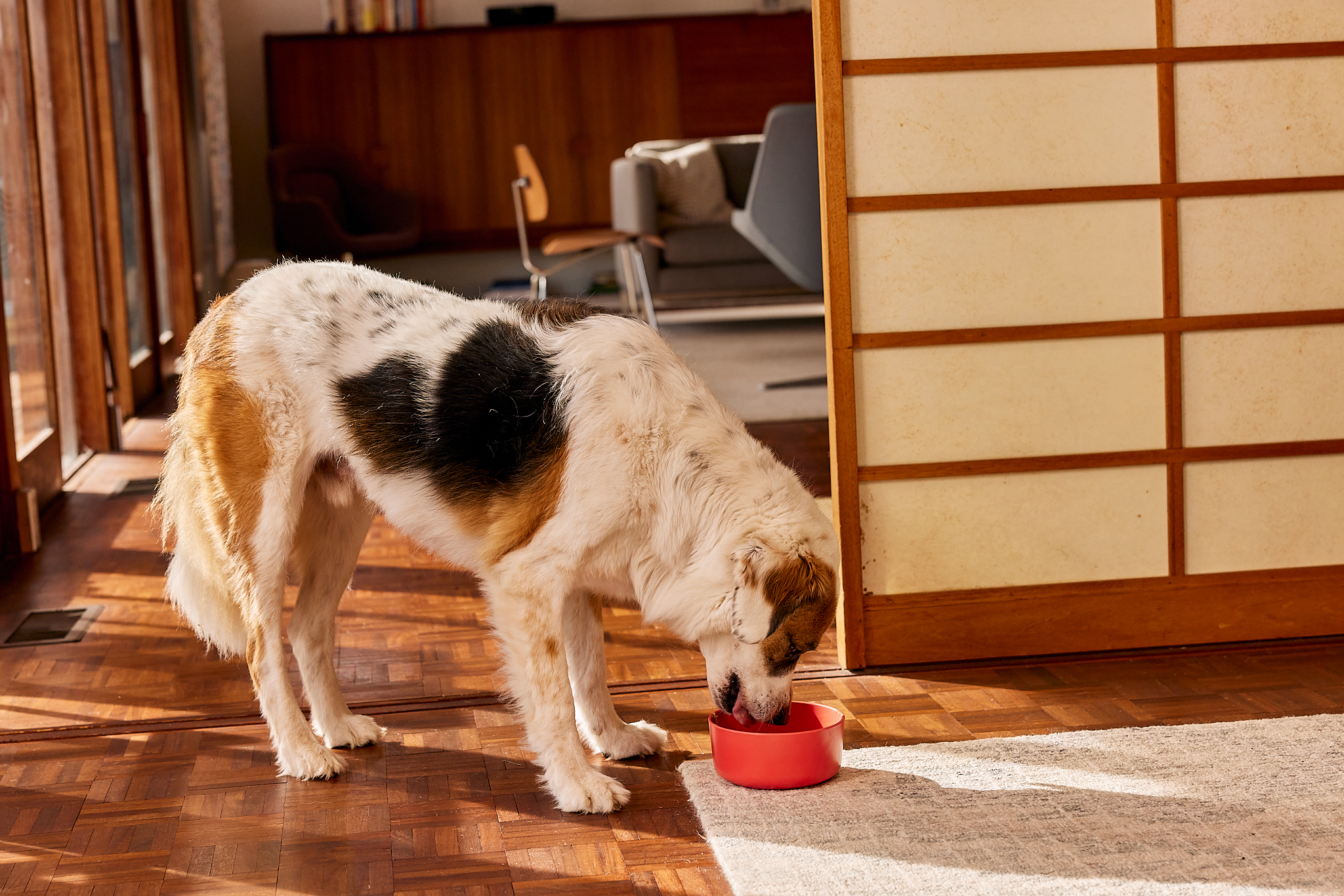Hey Ollie blog readers! We’re offering you an exclusive 60% OFF your starter box! Try now!
GMOs have been a hotly debated human food topic ever since genetically modified foods were introduced in the 1990s. But it’s also become a controversial issue in the dog food world for the same reason: government regulation of these foods varies so much, it makes us wonder if we really should be feeding our pups those altered ingredients. We chatted with Robert Silver, a holistic vet in Boulder, Colorado about whether it’s worth trying to avoid GMOs in your dog’s diet.
Most dog food contains GMOs
Unless the food specifically states that it’s non-GMO, you can pretty much assume that it contains genetically modified ingredients, Silver says. That’s because 95 percent of corn and soy crops are GMO—and those are major ingredients in most traditional dog food. (Ollie is free of corn, soy and wheat!)
That’s because GMOs are present in almost everything
GMO crops have infiltrated every crop, according to the Organic Consumers Association. In fact, 93 percent of soy, 86 percent of corn and 90 percent of canola is GMO. Even if you’re purchasing grain-free dog food, it could still contain GMO, Silver says, as most animals are fed them.
There are potential downsides
Some studies have found that animals fed GM corn and soy had certain health conditions, though there has only been anecdotal evidence pairing GMOs with dog issues, specifically. “In some cases, we’ve seen that it makes the protein more allergenic than it had been, so we can see that it stimulates more allergens as a result,” Silver explains. “But these are things that may only happen in a smaller percentage of the animals.”
But the risks aren’t clear
There are billions of dogs and billions of humans who eat GMOs daily, but we aren’t seeing billions of problems derived from eating them, Silver says. “The reason is that the GMOs may not necessarily adversely harm everyone that easily,” Silver says.
If you want to try to avoid them…
You can start by looking for corn and soy-free food. But feeding your dog a diet that’s 100% organic—not certified organic—is the only way to guarantee it’s really GMO-free—or you can source your own GMO-free ingredients and cook the food yourself (though of course, both come at a cost).
The Ollie blog is devoted to helping pet parents lead healthier lives with their pups. If you want to learn more about our fresh, human-grade food, check out MyOllie.com.
Tagged As:

The nutrition your dog needs,
the food they want.

Enjoying our articles? Subscribe our Newsletters and get new articles directly to your inbox
You might also like
4 June 2025
7 MINS READ
Feed Their Future: Why Human-Grade Food Matters for Puppies
Among the many decisions you’ll make as a new pet parent, choosing the right food for your growing puppy is one of the most important. The quality of your puppy’s diet can impact their developme…
by Ollie Pets
4 June 2025
6 MINS READ
How Does Fresh Dog Food Compare to Homemade?
As pet parents become more conscious about what goes into their dog’s food bowl, many are considering alternatives to traditional kibble. Two increasingly popular options are fresh dog food and ho…
by Ollie Pets
4 June 2025
5 MINS READ
How Can Fresh Dog Food Help with Weight Management?
Maintaining a healthy weight is one of the most important aspects of your dog’s overall health and longevity. Being overweight or underweight can result in health complications and conditions that…







